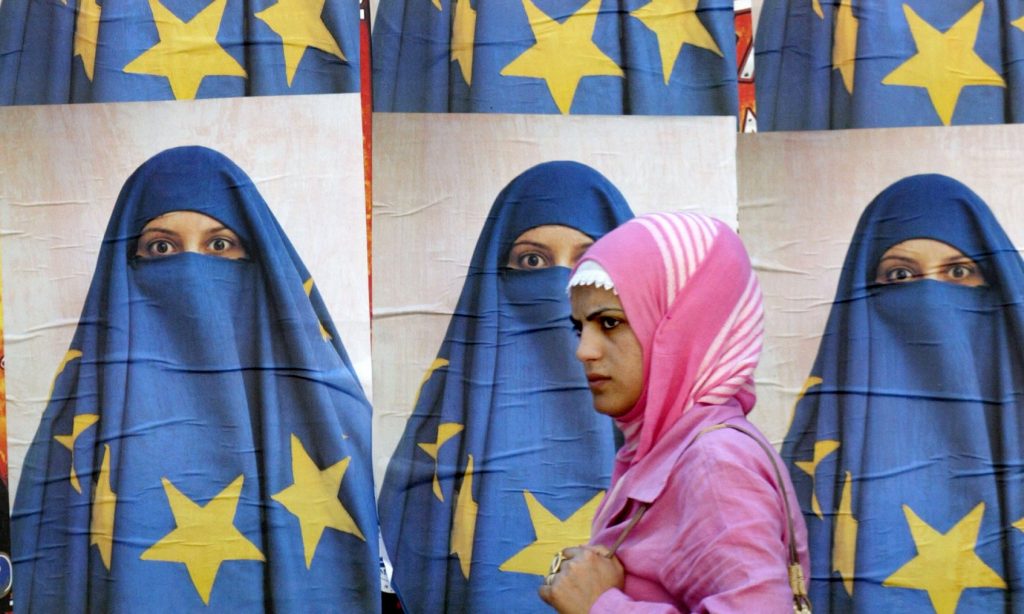Companies should be free to ban Muslim women from wearing headscarves at work if they have a general policy barring all religious and political symbols, a senior EU lawyer has said.
A headscarf should be seen no differently to a Jewish kippa, a Sikh turban or a Christian wearing a prominent crucifix or a T-shirt emblazoned with the slogan “Jesus is great”, said Juliane Kokott, an advocate general at the European court of justice.
Companies should be entitled to prevent staff from wearing any garments making a religious, political or philosophical statement, she said, in the run-up to a landmark ruling expected from the EU’s highest court this year.
The advocate general’s opinion is not binding, but the court’s judges often follow such pronouncements in their final ruling.
The case concerned was heard by the court after a complaint from a Muslim woman in Belgium who was fired for wearing a headscarf.
Samira Achbita had been a receptionist for the Belgian branch of G4S, the London-listed outsourcing and security company. After working there for three years, she decided she wanted to start wearing a headscarf at work for religious reasons. She already wore a headscarf outside working hours.
But G4S Belgium said a headscarf contravened company policy, at that time an unwritten rule. Achibita was fired in June 2006 for refusing to take off the scarf.
The day after her dismissal G4S Belgium updated its code of conduct to ban “any visible signs of their political, philosophical or religious beliefs”.
Achbita, supported by an NGO, the Interfederal Centre for Equal Opportunities, launched a case for wrongful dismissal in the Belgian courts. A lower court and appeal court dismissed her claim, but her case was passed to the ECJ in Luxembourg, which has the final say over the interpretation of the EU’s anti-discrimination directive.
Giving her opinion, Kokott said the G4S ban was an appropriate and proportional policy in line with the company’s objectives of religious and ideological neutrality.

Photograph: Oli Scarff/Getty


One Response
Am not in support of this as well. But putting into considerate the Muslim sisters that are always on scarf are they saying they shouldn’t work? Religion is a life style. Modesty is what matters.